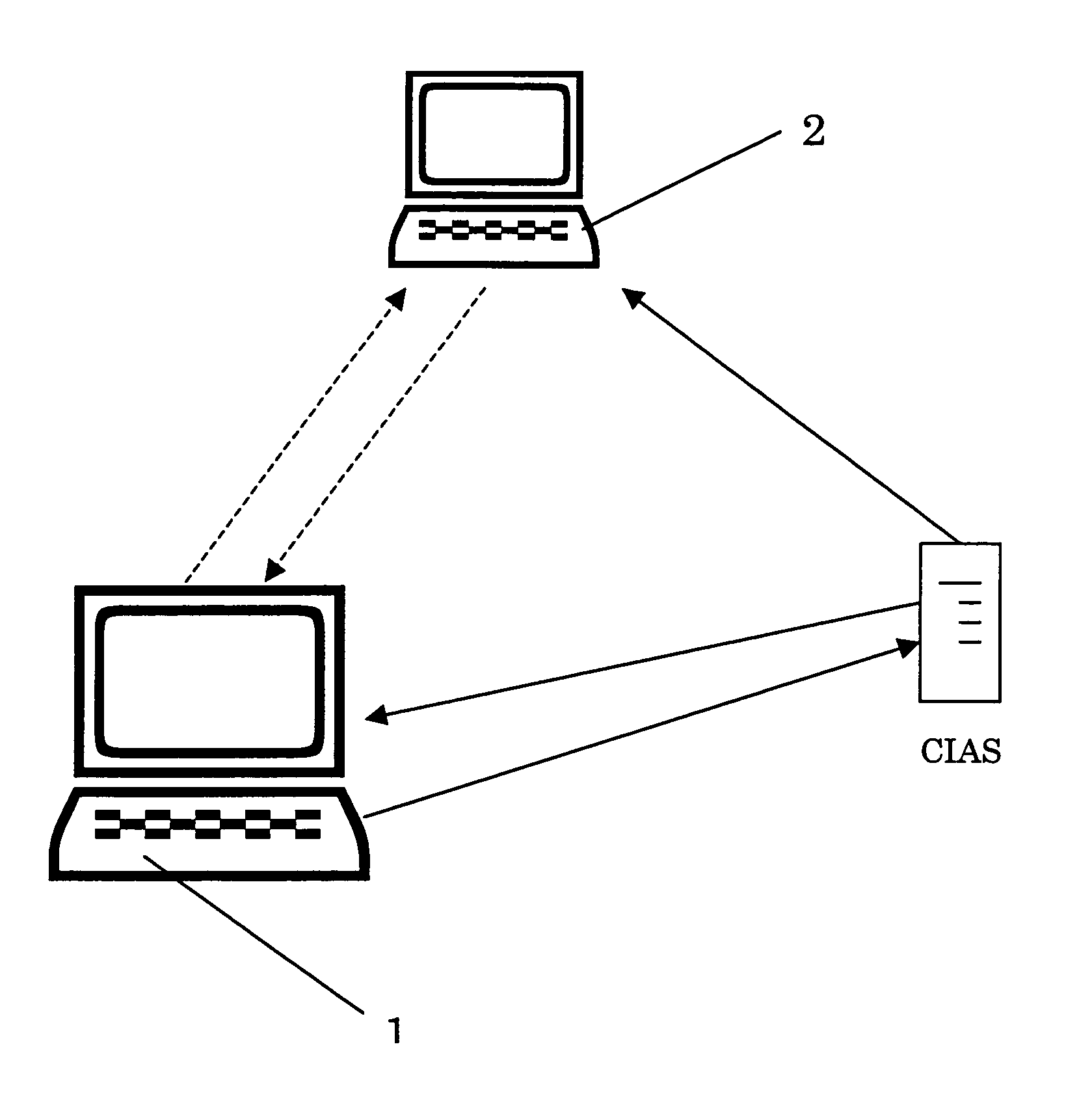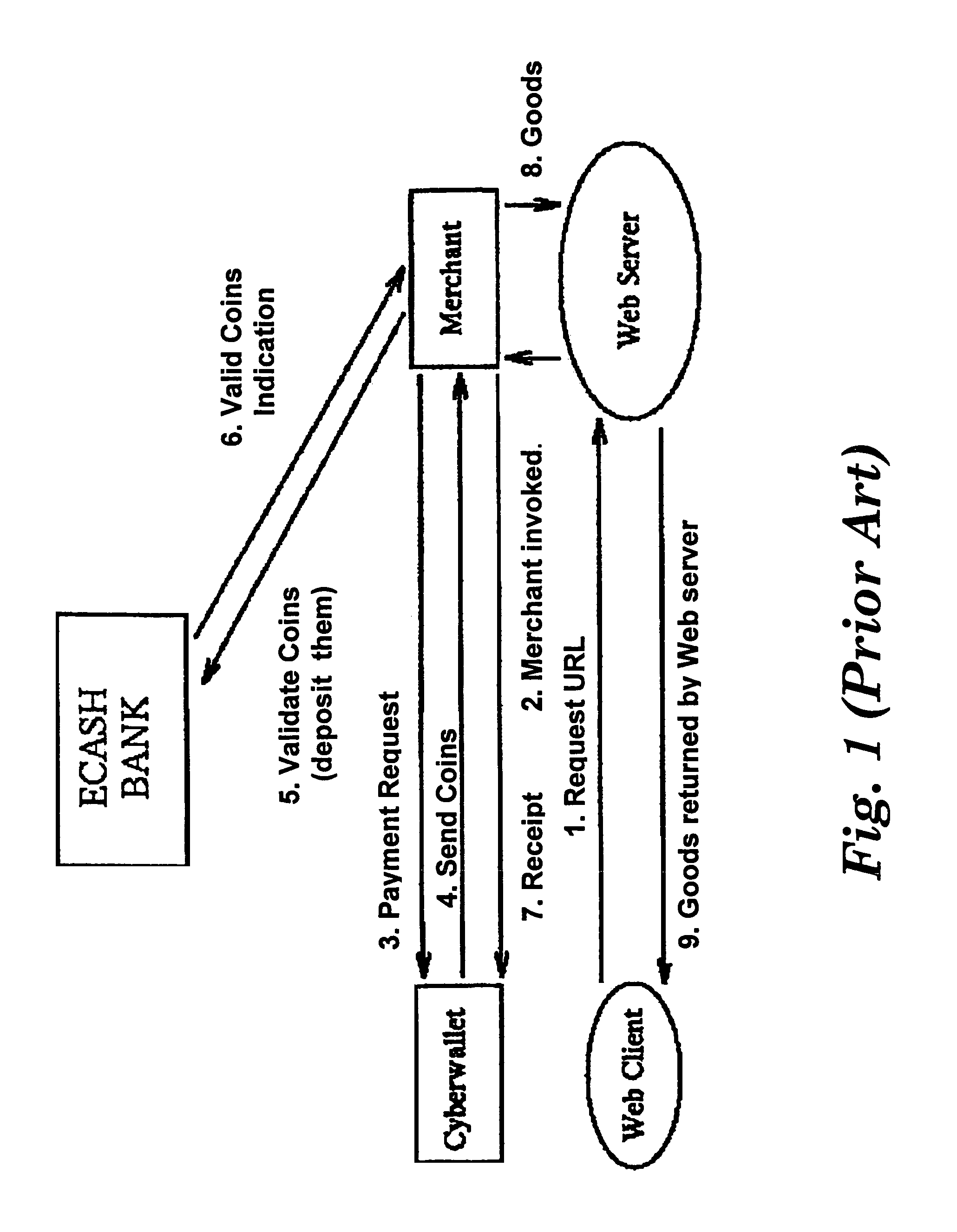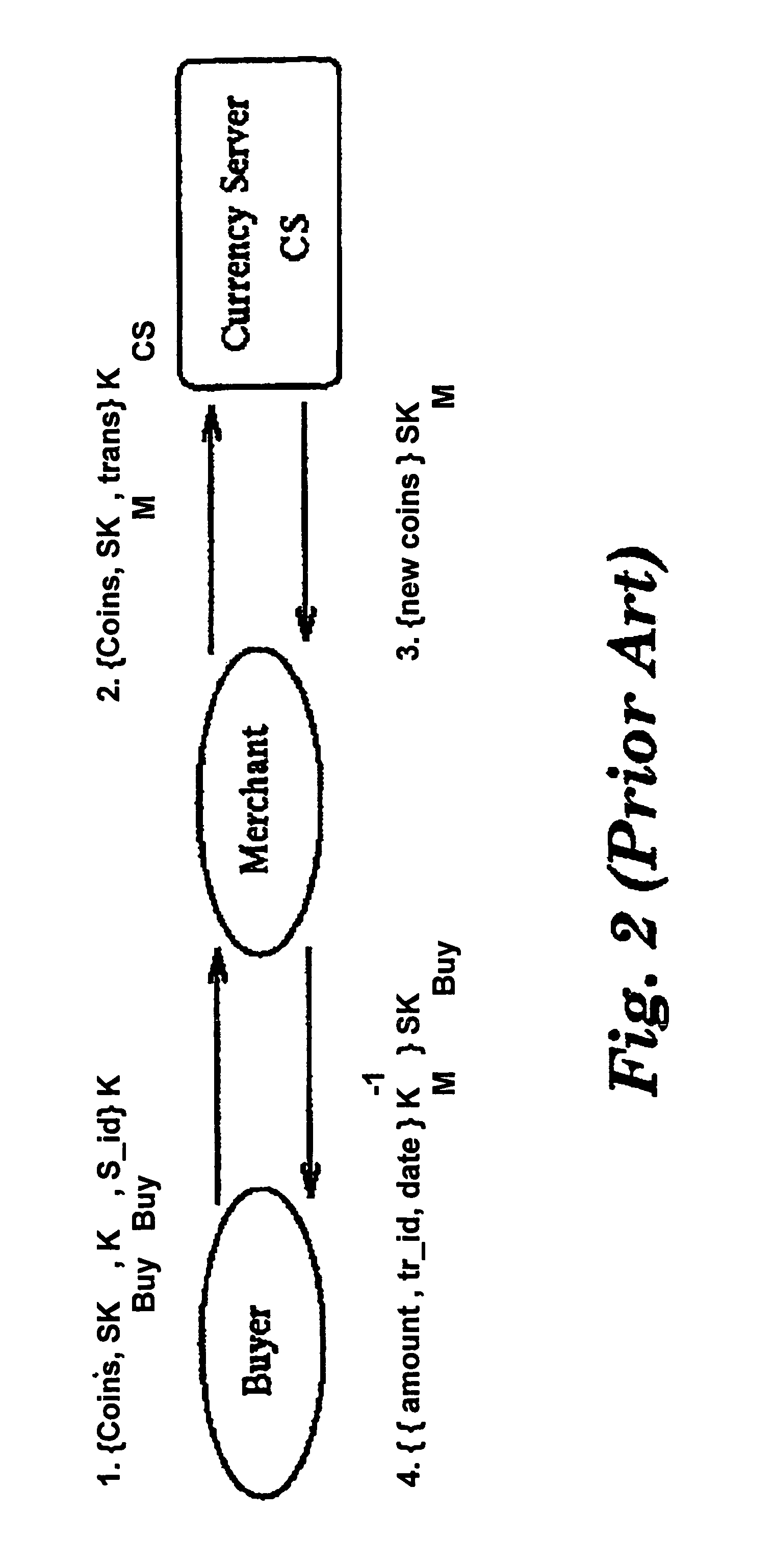The electronic wallet present several problems which, so far, have limited its use: it has a considerable security problem, inasmuch as the loss of the wallet entails the loss of the money it carries, it requires sophisticated storage means, coupled with a “
smart card”, as well as complicated and expensive
encryption procedures.
It further presents a
disadvantage that renders it unattractive for many persons, namely, it causes a loss of feeling of control over the money it contains.
Since all procedures are automated, encrypted and electronic, with only minimal intervention of the owner, many owners feel that they have no real control over the movement of their money.
While purchases made over
the Internet are by no means the sole use for the
electronic cash, they probably are the most problematic, mainly because of security problems.
The problem is a complicated one, because the use of credit cards over
the Internet is unsafe, and because in many transactions the buyer does not wish to provide details of himself, or of his
bank account.
Sellers deal with just a handful of accounts, spreading transaction costs over a large volume of purchases.
By performing the exchange and by choosing any currency
server to do this with, it becomes difficult to track the path of the coins.
All the aforementioned systems require a direct interaction between the seller and the buyer during the transfer of the
payment and / or involve complicated and time-consuming key agreement processes.
This leads to the danger that, if one has a disk
crash, which is quite common nowadays in view of the complexities of modern day
software, or if one's computer is stolen, one has lost his money.
Another severe drawback of certain systems is that they require that the cash dispenser be involved in the transaction, to identify the users (either the buyer, the seller, or both), rendering the transaction cumbersome, and detracting from its privacy.
For this reason, e-commerce is still relatively limited both in physical transactions, such as in shops and in service-providing establishments, and over the Internet.
All the prior art methods and systems suffer from severe drawbacks arising from a misconception that could be termed “excessive protectivity”.
While it is important to ascertain that theft of such sums is made difficult, just as one keeps his pocket money, the danger of theft does not justify the complexity of the systems devised by the prior art.
Additionally, and largely because of said misconception, most of the prior art systems require the user to open an account with either a
bank, or a pseudo-bank, or with a supplier, and either to provide prepaid funds to these accounts, from which it is possible to draw, or to perform relatively complicated operations when the user wishes to spend, withdraw or generate funds.
Another severe drawback of certain systems is that they require that the cash dispenser be involved in the transaction, to identify the users (either the buyer, the seller, or both), rendering the transaction cumbersome, and detracting from its privacy.
For this reason, e-commerce is still relatively limited in physical shops and over the Internet.
However, if no independent
security system exists, there remains a concern that currency theft may be effected at the user's level, e.g., by hostile downloadables or
virus-like programs that may infiltrate the user'
s system.
Such programs may even copy the entire data hard disk or other drive where the Internet money is stored.
Although the use of small amounts of money for small purchases greatly diminishes this danger, theft of this type is still possible.
 Login to View More
Login to View More  Login to View More
Login to View More 


